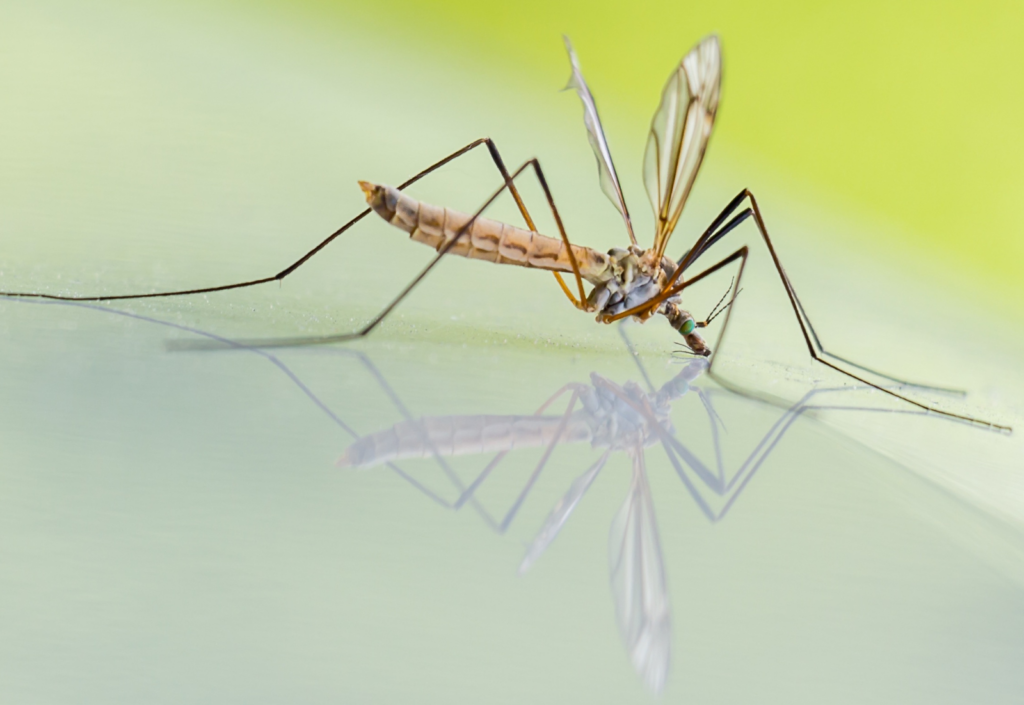After those long Minnesota winters, we just can’t wait for the warm weather of summer. Unfortunately, neither can mosquitos.
Mosquitos – affectionately known as the Minnesota state bird – can quickly turn fun outdoor activities into uncomfortable experiences, punctuated by endless swatting and scratching. In addition to being incredibly annoying, mosquitos also pose a significant threat to public health by transmitting diseases.
To help you minimize the presence of mosquitos in your backyard this summer, let’s take a look at the importance of mosquito control, mosquito borne illnesses to be aware of, and what you can do to help minimize mosquito populations.
Why You Should Play an Active Role in Mosquito Control

There are many situations in which we might say, “Leave it to the professionals.”
Mosquito control is not one of them.
While professional mosquito control services play a key role in helping reduce mosquito populations, individual mosquito management strategies are going to make the biggest difference in your neighborhood. If everyone within a 5 mile radius participated in pest-management and best practices for keeping mosquitoes away, you’d notice a huge difference.
By playing an active role in mosquito control, you can:
- Reduce the occurrence of mosquito-borne diseases in your state.
- Help protect vulnerable populations such as children, the elderly, and individuals with compromised immune systems.
- Make the outdoors more comfortable for everyone.
Mosquito-Borne Diseases in Minnesota:
Mosquitos breed in water. As the “Land of 1000 Lakes,” it should come as no surprise that Minnesota sees more than its fair share of the insect. According to the Minnesota Department of Health, we have approximately 50 different species of mosquitoes!
The good news is, only a few of them can carry and transmit diseases. The most common mosquito-borne illnesses in Minnesota are:
- West Nile Virus: People who get WNV usually have no symptoms or mild symptoms, including a fever, headache, body aches, skin rash, and swollen lymph glands. Symptoms usually go away on their own. If WNV enters the brain, however, it can be life-threatening.
- La Crosse Encephalitis: This viral disease primarily affects children, causing inflammation of the brain. It is transmitted by the eastern treehole mosquito and can lead to long-term neurological complications.
- Jamestown Canyon Virus: Jamestown Canyon virus (JCV) is primarily transmitted to humans through mosquito or tick bites. While most JCV infections result in mild or asymptomatic cases (initial symptoms can include fever, fatigue, and headache), severe neurological complications can occur in rare instances, particularly in older adults or individuals with weakened immune systems.
Effective Mosquito Control Methods
To combat mosquitoes effectively, a combination of preventive measures and control strategies is essential. Here are some effective mosquito control methods:
Source Reduction: Eliminate or manage mosquito breeding sites by removing standing water from containers, cleaning gutters, and ensuring proper drainage. Regularly emptying and refreshing birdbaths, flower pot saucers, and pet water bowls can significantly reduce mosquito breeding areas.
Larviciding: A larvicide is a type of insecticide used to control mosquitoes indoors and outdoors around your home. They work by killing mosquito larvae before they can grow into adults. When used according to product label instructions, larvicides do not harm people, pets, or the environment.
Biological Control: Introducing mosquito predators, such as mosquito fish, to bodies of water can provide natural pest control. These fish feed on mosquito larvae which helps reduce their numbers.
Insect Repellents: Using Environmental Protection Agency (EPA)-approved insect repellents containing active ingredients like DEET, picaridin, or oil of lemon eucalyptus can keep mosquitoes away from your exposed skin and clothing.
Mosquito Traps: Using mosquito traps, such as CO2-based traps or electric traps, can help capture and reduce mosquito populations in targeted areas. This is especially effective when multiple homes in a neighborhood use mosquito traps simultaneously.
Professional Mosquito Control: When a mosquito problem gets out of hand, call in the experts for help. Backpack spraying of insecticides directly on mosquito-infested areas is one of the modern treatment methods used by IPM-trained professionals.
By working together, residents and pest control experts can keep the mosquito populations down in targeted areas. Mosquito control is crucial to not only keep summer outdoor activities enjoyable, but also to protect public health.
Looking To Enhance Your Landscape This Summer?
Planning on hosting all the get-togethers this summer? Make sure your backyard is party-ready and call McDonough Landscaping! With our general landscaping services, patio installation, maintenance services and more, our experienced staff can help transform your backyard into a summer oasis! To learn more about our services and schedule an appointment, visit our website or call us at (651) 755-7901.
